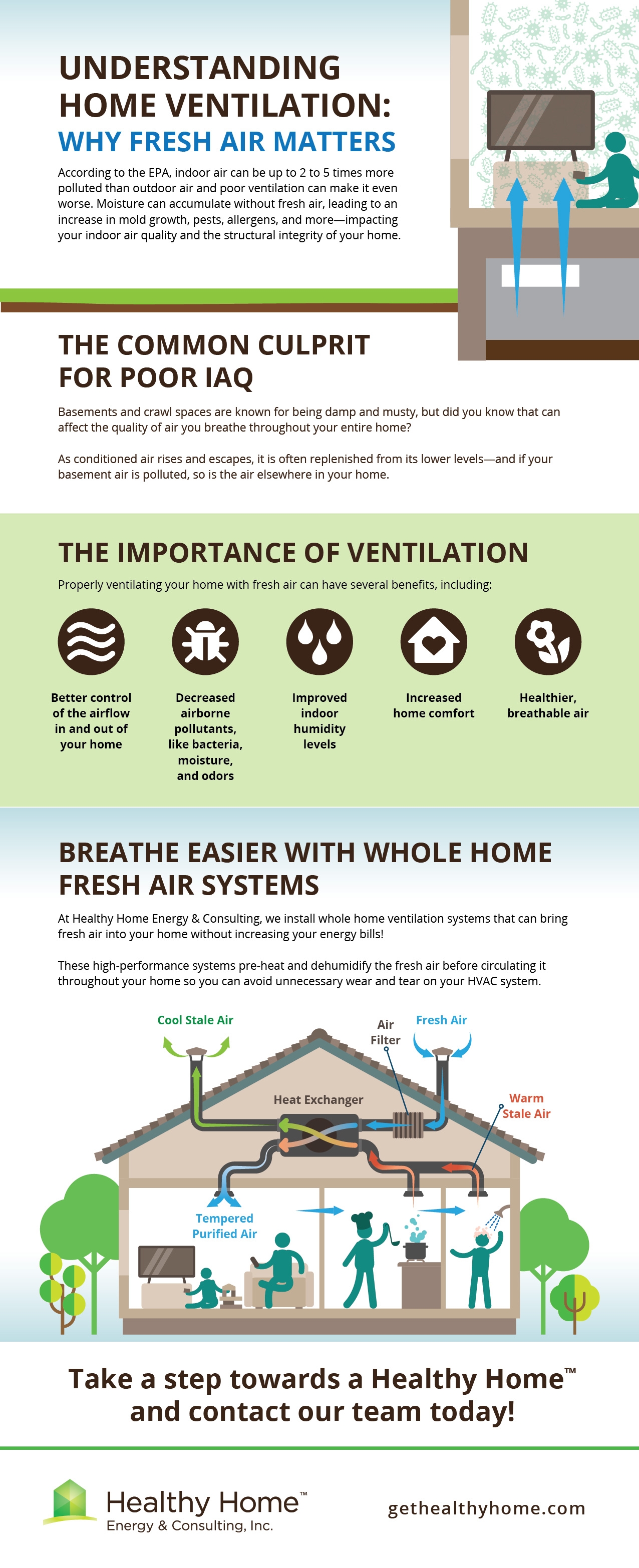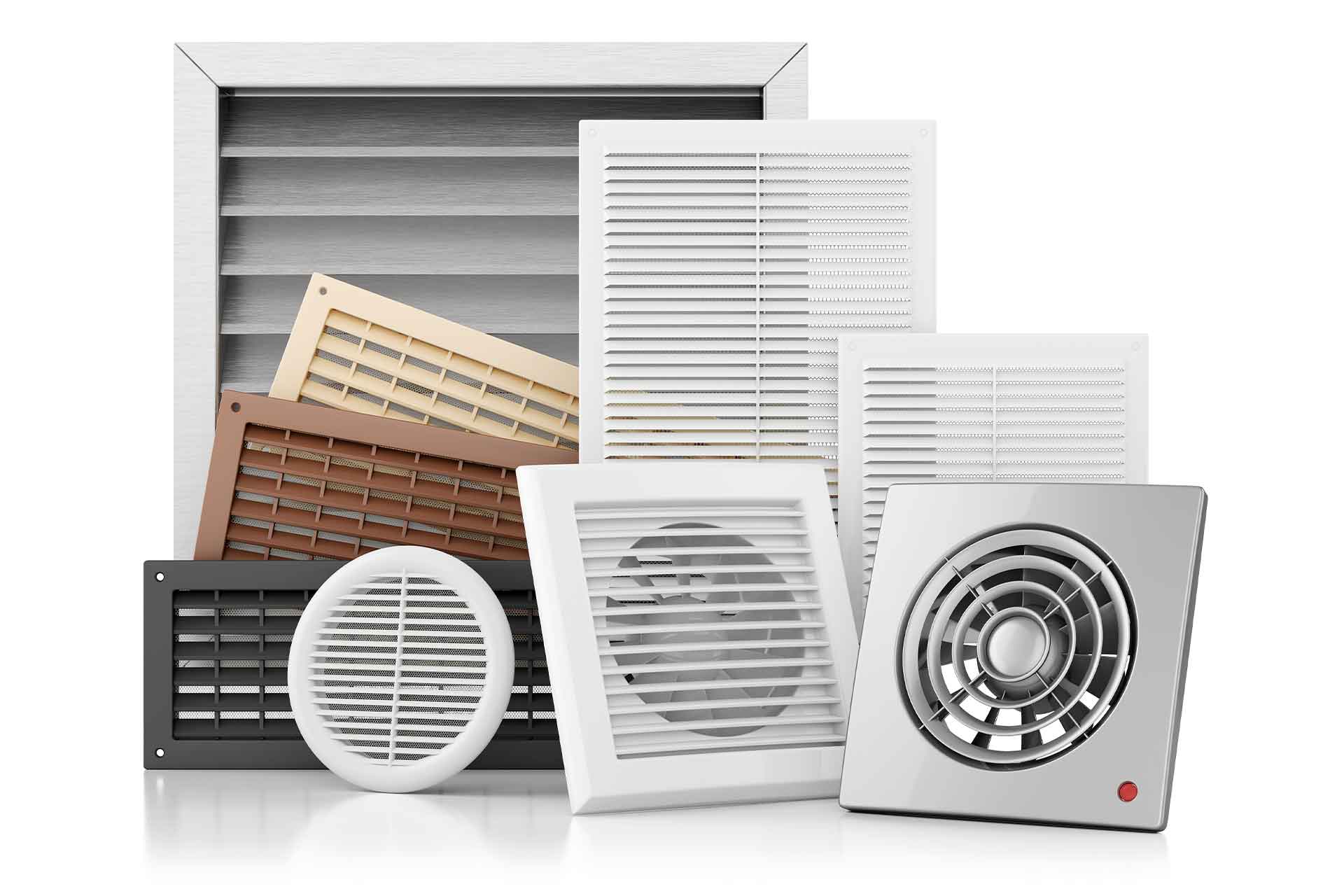The Hidden Health Risks of Poor Home Ventilation Melbourne
Wiki Article
The Role of Home Ventilation in Stopping Mold And Mildew and Indoor Allergens
Home ventilation is an essential part in preserving a healthy indoor environment. It manages humidity levels, which can stop the development of mold and mildew and the accumulation of irritants. Many homeowners ignore the value of appropriate ventilation, typically causing undetected problems. Recognizing just how air flow systems feature and their influence on air quality could be the key to a much healthier living room. What steps can be taken to boost these systems properly?Recognizing Home Air Flow Systems
While lots of house owners may ignore the importance of air flow, comprehending home ventilation systems is crucial for preserving indoor air high quality and preventing mold and mildew development - Home Ventilation Melbourne. These systems facilitate the exchange of stagnant interior air with fresh outdoor air, effectively decreasing contaminants and dampness degrees. Common types include natural ventilation, which relies upon wind and temperature level distinctions, and mechanical air flow, which utilizes air ducts and fans to manage air flow. Furthermore, balanced ventilation systems combine both methods to optimize air quality. Correctly developed and maintained ventilation systems can help manage temperature level and humidity, making certain a comfy living atmosphere. House owners must think about aspects like home tenancy, climate, and layout when selecting an air flow system to finest fit their needs and boost general air high quality
The Influence of Humidity on Mold Development
Humidity plays a crucial function in mold development, making it a crucial variable for house owners to monitor. Mold and mildew grows in atmospheres where humidity levels go beyond 60%, as these conditions give the wetness essential for spores to proliferate and sprout. High humidity can result from numerous sources, consisting of poor ventilation, water leakages, and cooking or bathing tasks. When humidity levels continue to be elevated, mold can develop quickly on natural materials such as timber, drywall, and textile. Homeowners must make use of dehumidifiers and guarantee appropriate air flow in locations prone to wetness, such as cellars and washrooms. Preserving interior moisture in between 30% and 50% can significantly minimize the threat of mold growth, contributing to a healthier living atmosphere.Determining Typical Indoor Allergens
Interior settings can nurture a variety of allergens that impact health and comfort. Typical indoor allergens include dirt termites, family pet dander, mold and mildew spores, and plant pollen. Dirt termites grow in bed linens, carpetings, and furniture, preying on natural product and adding to respiratory system issues. Pet dander, composed of tiny flakes from skin and hair, can trigger allergic responses in sensitive individuals. Mold and mildew spores, typically present in moist areas, can proliferate and affect air quality. In addition, plant pollen can penetrate homes with open home windows or on garments. Determining these allergens is crucial for keeping a healthy and balanced interior atmosphere. Understanding of their presence permits home owners to take aggressive procedures to reduce exposure and boost general indoor air quality.Advantages of Correct Ventilation
Proper air flow is necessary for preserving a healthy interior atmosphere, as it aids to manage air quality and reduce the build-up of pollutants. Ample air flow helps with the exchange of interior and outside air, thereby diluting dangerous substances such as unstable organic substances, allergens, and dirt. This process not only boosts comfort yet likewise adds to the general health of residents by lessening respiratory system issues (Home Ventilation Melbourne). In addition, proper air flow effectively manages moisture levels, minimizing the likelihood of mold development and fostering a drier atmosphere for wellness. Furthermore, it can enhance power performance by ensuring that home heating and air conditioning systems operate better, causing reduced energy expenses. On the whole, proper ventilation is an important part in promoting a healthy and risk-free home

Tips for Improving Home Ventilation
Many Home Ventilation Melbourne property owners may neglect it, improving home ventilation is essential for enhancing air quality and preventing mold development. One reliable approach is to regularly open home windows to advertise cross-ventilation, enabling fresh air to distribute. Setting up exhaust fans in washrooms and cooking areas can effectively eliminate moisture-laden air, decreasing humidity degrees. Home owners must likewise consider making use of air cleansers with HEPA filters to catch allergens and toxins. Routinely preserving cooling and heating systems, consisting of changing filters, warranties come to a head airflow and performance. Securing leaks around home windows and doors can prevent outdoors air from entering, which aids keep a consistent interior setting. Lastly, integrating houseplants can normally enhance air quality while including aesthetic worth to the home.Often Asked Questions
Exactly how Frequently Should I Tidy My Home Ventilation System?
Figuring out how commonly to clean a home air flow system relies on different variables, including use and ecological problems. Home Ventilation Melbourne. Generally, experts advise a complete cleansing every three to 5 years to keep optimal air movement and efficiencyCan Plants Help In Reducing Indoor Allergens?
Research study shows that certain indoor plants may assist lower allergens by enhancing air high quality and raising humidity. Nevertheless, their efficiency differs, and preserving a tidy setting remains necessary for managing indoor allergens successfully.What Sorts Of Air Filters Are Best for Mold And Mildew Prevention?

Are There Particular Ventilation Requirements for Cellars?

How Do I Know if My Ventilation Is Functioning Properly?
To determine effective air flow, one need to monitor humidity levels, inspect air flow via vents, and observe indicators of condensation or stagnant air. Regular analyses can show whether the system properly distributes and exchanges indoor air.Comprehending just how air flow systems feature and their influence on air top quality can be the trick to a much healthier living space. While many homeowners may neglect the significance of ventilation, comprehending home air flow systems is necessary for keeping interior air high quality and protecting against mold and mildew development. Typical types include natural air flow, which counts on wind and temperature level distinctions, and mechanical ventilation, which uses fans and ducts to control air movement. Correct air flow is necessary for keeping a healthy and balanced indoor environment, as it helps to manage air top quality and minimize the accumulation of pollutants. Many home owners might ignore it, enhancing home ventilation is important for boosting air top quality and stopping mold development.
Report this wiki page